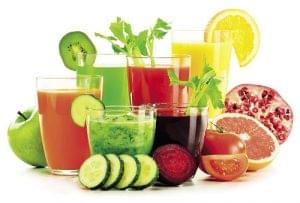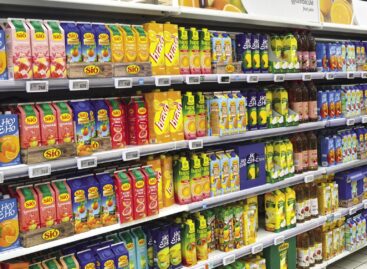Magazine: Nectar consumption grew the fastest
In 2016 the per capita consumption of 100-percent fruit juices was 4 litres/year, nectar consumption was at 1.2 litres and annual fruit drink consumption was 20 litres per person – these three categories represented 11 percent of non-alcoholic drink consumption. About 50 percent of 100-percent fruit juices and 60 percent of nectars made in Hungary go to export; 98 percent of fruit drinks are sold in the domestic market – informed Istvánné Bikfalvi, secretary of the Hungarian Mineral Water, Fruit Juice and Soft Drink Association.
 From the three product types fruit drinks contain the most added sugar. The sugar in 100-percent fruit juices only comes from the fruit processed, while some sugar is added when nectars are made, in order to make products tastier. Thanks to the efforts of manufacturers, by 2017 the average sugar/calorie content of fruit drinks reduced and the proportion of low- or zero-calorie products grew by almost 10 percent.
From the three product types fruit drinks contain the most added sugar. The sugar in 100-percent fruit juices only comes from the fruit processed, while some sugar is added when nectars are made, in order to make products tastier. Thanks to the efforts of manufacturers, by 2017 the average sugar/calorie content of fruit drinks reduced and the proportion of low- or zero-calorie products grew by almost 10 percent.
Four large and several medium-sized companies are producing fruit juice in Hungary – 90 percent of sales are realised by the four key players. Among 100-percent fruit juices orange is the most popular flavour, followed by apple and tomato. From nectars the peach flavour is the best seller, followed by orange and multivitamin. Shoppers buy peach fruit drinks in the largest quantity, then come apple and orange. //
Related news
A change of era in the glass
🎧 Hallgasd a cikket: Lejátszás Szünet Folytatás Leállítás Nyelv: Auto…
Read more >Related news
Hygiene on new foundations
🎧 Hallgasd a cikket: Lejátszás Szünet Folytatás Leállítás Nyelv: Auto…
Read more >High-value shopping basket and more conscious shoppers: growing demand for domestic and healthy products
🎧 Hallgasd a cikket: Lejátszás Szünet Folytatás Leállítás Nyelv: Auto…
Read more >








